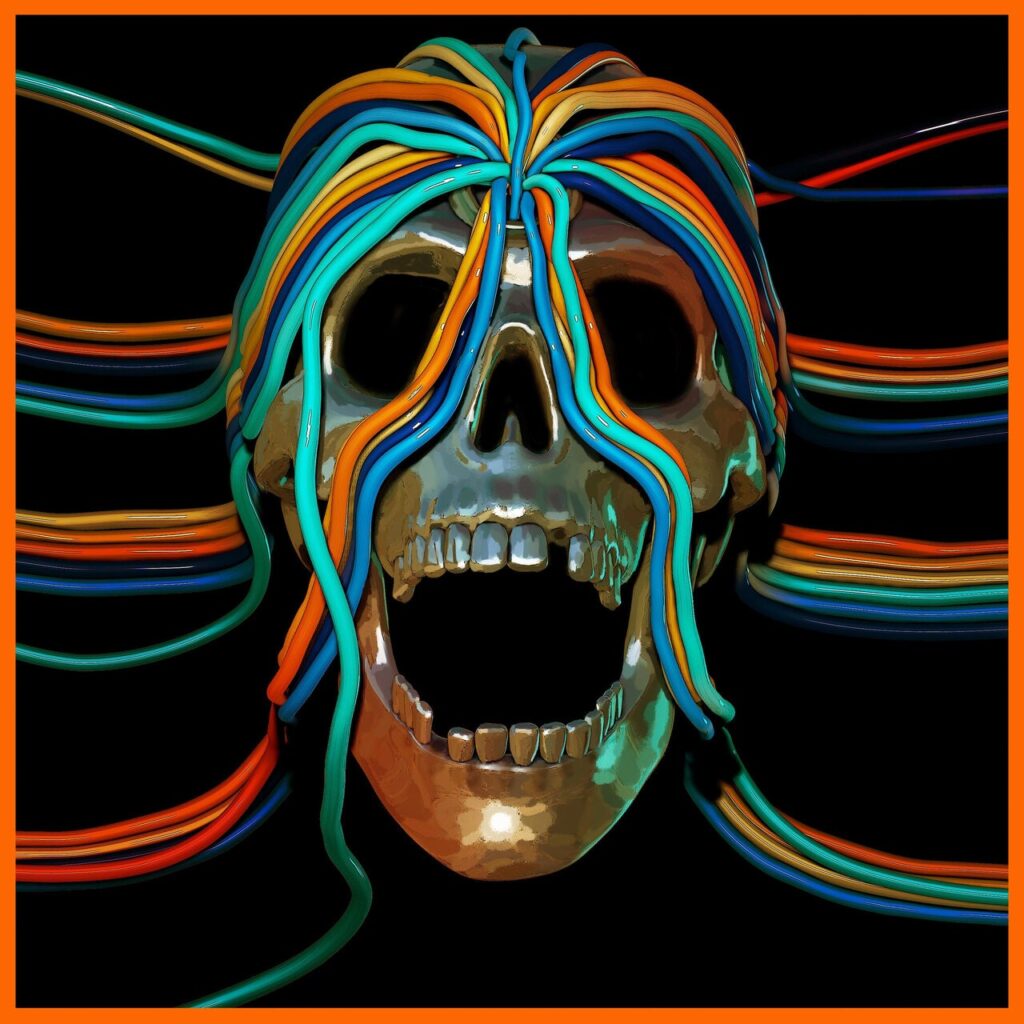It’s always a toss-up which style of guitar music John Dwyer and his rotating cast of Osees collaborators will lean into with each new album. Last time it was hardcore, but sometimes it’s prog or krautrock or metal. Dwyer has vowed to make music at a prolific clip for as long as possible, taking inspiration from old punks who claimed they wanted to die onstage. Perpetual engagement with Osees (or Oh Sees, Thee Oh Sees, OCS, or however else he decides to spell it) means weaving with the ever-shifting tide of Dwyer and his collaborators. His primary co-conspirator on Intercepted Message is “keyboards guru” Tom Dolas, whose taste and style defined the album’s overall vibe. “This record should have Tom’s fucking face on the cover,” Dwyer recently underlined. The songs vacillate between synth pop, new wave, disco, garage rock, and post-punk; synths and keys take the opening hook of the first three songs. Put snappily, it’s the band’s keyboards album.
The essential Osees elements are still very much accounted for: the assertive hammering rhythm guitar riffs, the scrambling chaotic lead guitar solos, and the seemingly instinctive “ow”’s and “woo”’s that Dwyer yelps before a big drop. This lineup’s two drummers, Dan Rincon and Paul Quattrone, propel these songs into the stratosphere, creating a monolithic attack when they play in unison and a chaotic landscape when they drift apart. At its best, Intercepted Message harnesses all that adrenaline with exacting precision. “Blank Chems” opens with a rigid, driving synth that provides an underlying current to rapidly climbing guitars that amplify anxiety. What makes the song, however, are the swaths of open space. Guitar chords are left to ring out; big open mouth staccato breaths become prominent percussive textures. The gulfs between the action emphasize some of the best reasons to listen to this band—to delight in every jolt, every thrash, every “ow, ow.”
Osees’ other secret weapon is their proficiency at locking into a groove, and “Die Laughing” showcases one of their best. On paper it shouldn’t work: this L.A. band fresh off a punk album making a grimy dance song that sounds like a late ’70s New York City melting pot of punk, disco, funk, and no wave. The rhythm’s danceable enough on its own, and it’s an ideal canvas for both drummers to spread out. Dwyer’s voice is muffled to oblivion as he rattles off fever dream dance instructions beneath scuzzy guitar stabs and outer space electronic chirps. “Submerged Building,” while substantially less ramshackle and more of an Oh Sees-circa-2012 rock song, follows that essential formula—a solid rhythmic foundation that lays the groundwork for synth experimentation.
Intercepted Message has flashes of the band at its best, and it also has a song where Dwyer uses his trademark goblin voice to sing about gooning. It’s repetitive and has some lazy rhymes, but “Goon”’s key sin is that it sounds like some Zappa shit when Dwyer boasts about being a “Main Street ’bater” who uses a baseball bat to get off. Lyrics aren’t generally the album’s strong point: Dwyer’s vocals come across as vibes-first impulses, broad gestures to the general emotions he’s trying to convey like the “tears on your face” brokenheartedness of “Always at Night.” The edginess often feels like a tossed off non-sequitur: Why exactly is the king a “cunt” in the title track’s chorus, and for that matter, who is he?
The disparate vibes don’t always gel, either. “Unusual & Cruel,” glossy ’80s synthpop worship peppered with Dwyer’s trademark abrasiveness, is sandwiched between “Die Laughing” and a skronky (plus frankly corny and unnecessary) cover of Blurt’s 1981 post-punk jam “The Fish Needs a Bike.” The closing moment is a rendition of the vaporwave telephone hold banger “Opus No. 1.” The best songs will be welcome additions to their live repertoire; it’s already riveting to watch them play these songs at full dual drummer power. But the threads that bind these songs are loose and inconsistent, which might be a given for a band that moves fast and jumps from one subgenre micro-era to the next.
All products featured on Pitchfork are independently selected by our editors. However, when you buy something through our retail links, we may earn an affiliate commission.

